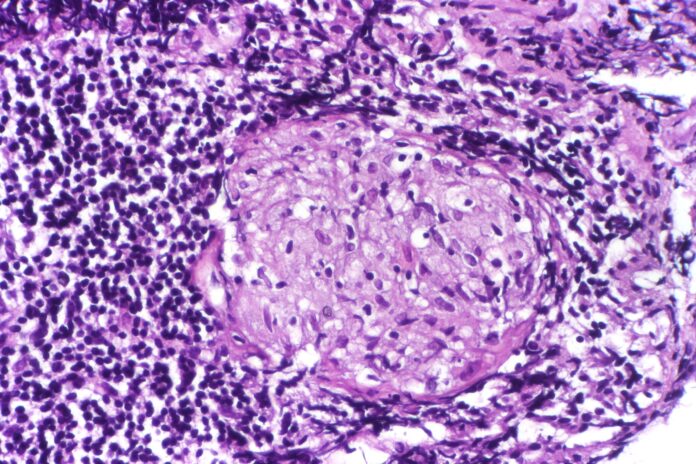
Ileitis, also known as regional enteritis or Crohn’s disease, is a form of inflammatory bowel disease that affects the ileum, which is the last part of the small intestine. Ileitis can cause a wide range of symptoms that can vary in severity from person to person. Understanding the symptoms of ileitis is important for early diagnosis and appropriate treatment.
In this article, we will explore the common symptoms of ileitis and provide insights into the potential complications associated with this condition. It is important to note that if you suspect you have ileitis, it is crucial to seek medical advice from a healthcare professional.
Abdominal Pain
One of the hallmark symptoms of ileitis is abdominal pain. This pain is often located in the lower right side of the abdomen, near the location of the ileum. The pain can range from mild discomfort to severe cramping and can be persistent or intermittent. In some cases, the pain may become worse after eating.
It is important to note that abdominal pain can have many different causes, so it is essential to seek medical evaluation if you are experiencing this symptom.
Diarrhea
Diarrhea is another common symptom of ileitis. The inflammation in the ileum can lead to poor absorption of water and nutrients, resulting in loose or watery stools. In some cases, diarrhea may be accompanied by urgency to have a bowel movement and may occur more frequently than usual.
If you are experiencing persistent diarrhea, it is important to discuss this symptom with your healthcare provider, as it can lead to dehydration and other complications if left untreated.
Weight Loss
Unintentional weight loss is a common symptom of ileitis. The inflammation in the small intestine can interfere with the body’s ability to absorb nutrients from food, leading to malabsorption and weight loss. In some cases, individuals with ileitis may experience a decrease in appetite, further contributing to weight loss.
If you have noticed significant and unintentional weight loss, it is important to discuss this with your healthcare provider, as it can be a sign of a serious underlying condition.
Fatigue
Fatigue is a common symptom of inflammatory bowel diseases like ileitis. The inflammation and malabsorption associated with ileitis can lead to nutrient deficiencies, which can contribute to fatigue. Additionally, chronic pain and frequent bowel movements can also contribute to feelings of fatigue and low energy levels.
If you are experiencing persistent fatigue, it is important to speak with your healthcare provider to determine the underlying cause and explore potential treatment options.
Fever
In some cases, individuals with ileitis may experience fever. The inflammation in the small intestine can trigger an immune response, leading to an elevated body temperature. If you are experiencing fever along with other symptoms of ileitis, it is important to seek medical evaluation to determine the underlying cause.
It is important to note that fever can be a sign of infection or other complications, so it is crucial to discuss this symptom with a healthcare provider.
Bloody Stools
Bloody stools can be a concerning symptom of ileitis. The inflammation in the small intestine can lead to bleeding, which can result in the presence of blood in the stool. It is important to note that blood in the stool can have many different causes, so it is essential to seek medical evaluation if you are experiencing this symptom.
If you notice blood in your stool, it is important to discuss this with your healthcare provider to determine the underlying cause and explore appropriate treatment options.
Nausea and Vomiting
Nausea and vomiting can occur in individuals with ileitis. The inflammation in the small intestine can lead to gastrointestinal distress, which can result in feelings of nausea and episodes of vomiting. If you are experiencing persistent nausea and vomiting, it is important to discuss this with your healthcare provider to determine the underlying cause and explore appropriate treatment options.
It is important to note that nausea and vomiting can lead to dehydration and other complications, so it is crucial to seek medical evaluation if you are experiencing these symptoms.
Mouth Ulcers
Mouth ulcers, also known as canker sores, can occur in individuals with ileitis. The inflammation associated with ileitis can extend to the mouth, leading to the development of painful ulcers. If you are experiencing persistent mouth ulcers, it is important to discuss this with your healthcare provider to determine the underlying cause and explore appropriate treatment options.
It is important to note that mouth ulcers can be a sign of nutrient deficiencies, so it is crucial to seek medical evaluation if you are experiencing these symptoms.
Joint Pain
Joint pain is a common extraintestinal manifestation of inflammatory bowel diseases like ileitis. The inflammation associated with ileitis can trigger an immune response in the joints, leading to pain, swelling, and stiffness. If you are experiencing persistent joint pain, it is important to discuss this with your healthcare provider to determine the underlying cause and explore appropriate treatment options.
It is important to note that joint pain can have many different causes, so it is crucial to seek medical evaluation if you are experiencing this symptom.
Complications
If ileitis is left untreated or poorly managed, it can lead to a range of complications. These can include intestinal strictures, fistulas, abscesses, and malnutrition. It is important to work closely with a healthcare provider to develop a treatment plan that can help manage symptoms and reduce the risk of complications.
If you have been diagnosed with ileitis, it is important to discuss potential complications with your healthcare provider and to seek regular monitoring and follow-up care.

















